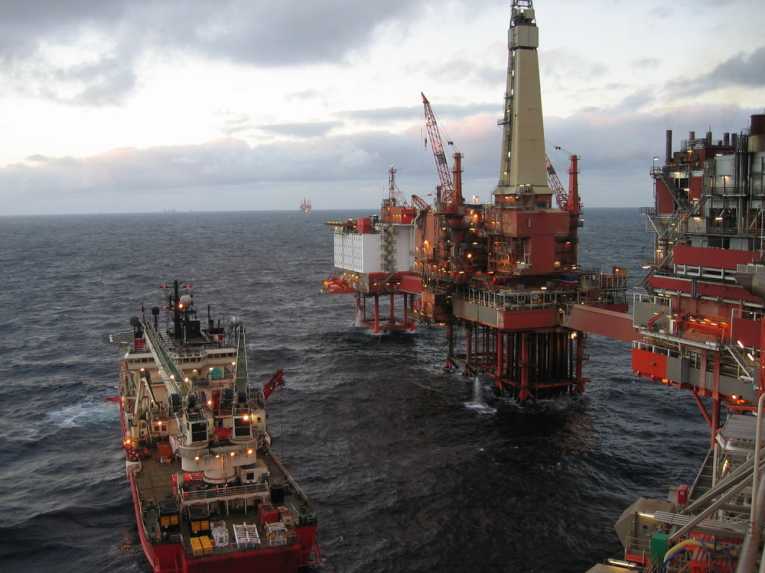New row bubbles over Scottish independence debate: who will foot bill for extensive North Sea clean-up when oil finally runs out?
Scotland's leading oil economist, Professor Alex Kemp of Aberdeen University, has told Westminster's energy select committee that, because the majority of UK oil rigs are in Scottish waters, an independent Scotland would be forced to foot a £30bn bill for decommissioning North Sea rigs, predicted for 2040.
Prof Kemp said: "There is no doubt about it, this will be an extra cost."
If Scotland win independence, that extra cost would be payable by Scottish taxpayers.
Scottish energy minister Fergus Ewing, however, rejected these claims outright, saying that the rest of the UK had a 'moral obligation' to contribute their share of the decommissioning costs.
The SNP member insisted a pro-independence referendum win would not wipe the slate of the benefits the UK has reaped from the rigs.
He said: "Plainly, given the UK has received £170bn from oil by rigs that have been decommissioned, then the UK received revenue in respect of those rigs.
"It would seem to us reasonable to suggest that having received all the revenue, which was accrued entirely in the UK, should in principal be the UK's responsibility.
"In principle, given that the UK has received substantial revenue from these rigs, it seems correct that the UK has a moral and certainly a legal duty to be responsible for decommissioning."
Fuelling the debate
Ewing's remarks have exacerbated the Scottish independence debate. The energy select committee chairman, Tim Yeo said Mr Ewing was "living in cloud cuckoo land." He said: "There is no way that an independent Scotland could come back in 28 years to the rest of the UK and ask for the clean-up costs to be paid."
John Robertson, Labour MP for Glasgow North West couldn't believe that the Scottish Parliament wanted revenue from oil reserves while ensuring the UK government "pays for any clean-up in 28 years time."
He said: "I find it absolutely incredible. Scotland has benefitted as much from oil as any area within the United Kingdom."
And Labour's shadow energy minister, Tom Greatrex, said: "What the SNP refuses to acknowledge is that oil and gas is a volatile and declining commodity, and that a separate Scotland would be less insulated from shifts in global commodity prices."
Good Energy, the UK's first 100% renewable energy provider, have made a similar point. Their website tells us that the UK currently produces only 43.1% of the electricity it consumes and this "lack of control over energy distribution and prices leads to a compromise of the country's energy security."
All the witnesses at the Westminster meeting agreed on one point: that even if Scotland separated from the rest of the UK, there should still be a single energy market, in the name of efficiency and cost saving.
Mr Robertson suggested that: "If he (Mr Ewing) thinks a single energy market is a good idea, why does he think that breaking up the UK in other respects is a good idea?"
A spokesman for Mr Robertson added that Mr Ewing's evidence left more questions than answers.
Oil, money, politics - it seems this is one debate that's not going anywhere in a hurry.










